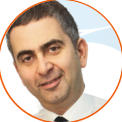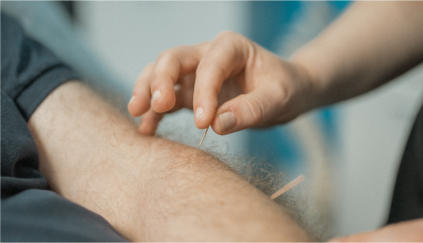
Patient-centred healthcare to improve your quality of life
93 Lynn Rd,
Downham Market,
PE38 9QE
Visit Us
Contact Us




Chinese and Japanese Acupuncture
What is Acupuncture?
Acupuncture is a treatment derived from ancient Chinese medicine. Fine needles are inserted at
certain sites in the body for therapeutic or preventative purposes. It is used in many NHS GP
practices, as well as in most pain clinics and hospices in the UK.
Acupuncture is often seen as a form of complementary or alternative medicine (CAM).
How acupuncture works
Western medical acupuncture (dry needling) is the use of acupuncture following a medical diagnosis.
It involves stimulating sensory nerves under the skin and in the muscles.
This results in the body producing natural substances, such as pain-relieving endorphins. It's likely
that these naturally released substances are responsible for the beneficial effects experienced with
acupuncture.
A course of acupuncture is usually recommended because it can take a few sessions for you to see
improvements.
Our Acupuncture Practitioners

Patient-centred healthcare to improve your quality of life
93 Lynn Rd,
Downham Market,
PE38 9QE
Visit Us
Contact Us


Traditional acupuncture is based on the belief that an energy, or "life force", flows through the body in channels called meridians. This life force is known as Qi
(pronounced "chee").
Practitioners who use acupuncture in the traditional way believe that when Qi does not flow freely through the body, this can cause illness. They also believe
acupuncture can restore the flow of Qi, and so restore health.
How acupuncture is performed
An acupuncture session lasts 1 hour and involves an assessment of your general health, medical history and a physical examination, followed by insertion of the
acupuncture needles.
Courses of treatment often involve several separate sessions, but this can vary.
Insertion of the needles
The needles are inserted into specific places on the body, which practitioners call acupuncture points.
During the session, you'll usually be asked to sit or lie down. You may also be asked to remove some clothes so the practitioner can access certain parts of your body.
The needles used are very fine and are usually a few centimetres long. They are single-use, pre-sterilised needles that are disposed of immediately after use.
Acupuncture practitioners choose specific points to place the needles based on your condition. Several points may be used during a typical session, depending on
the number of symptoms you have.
The needles may be inserted just under the skin, or deeper so they reach muscle. Once the needles are in place, they may be left in position for a length of time
lasting from a few minutes up to around 30 minutes.
You may feel a tingling or a dull ache when the needles are inserted but you should not experience any significant pain. If you do, let your practitioner know straight
away.
It's generally safe to have acupuncture when you're pregnant. However, let your acupuncture practitioner know if you're pregnant because certain acupuncture points
cannot be used safely during pregnancy.
Read more about the safety of complementary therapies in pregnancy.
Uses of acupuncture
Acupuncture practitioners – sometimes called acupuncturists – use acupuncture to treat a wide range of health conditions. However, the use of acupuncture is not
always based on rigorous scientific evidence.
The National Institute for Health and Care Excellence (NICE) provides guidelines for the NHS on the use of treatments and care of patients.
Currently, NICE only recommends considering acupuncture as a treatment option for:
•
Chronic (long-term) pain
•
Chronic tension-type headaches
•
Migraines
•
Prostatitis symptoms
•
Hiccups
Acupuncture is also often used to treat other conditions and symptoms, including:
•
Joint and muscle pain
•
Jaw pain
•
Cancer symptoms such as pain
•
Side effects of cancer treatment such as feeling or being sick from chemotherapy
•
Feeling sick or being sick after surgery
However, the evidence on the effectiveness of acupuncture compared with other treatments is unclear.
Sara is a Physiotherapist
specialising in adults with any
Musculoskeletal problems. Sara
takes a “biopsychosocial” approach
with person-centred goals.


Sara Miguel

Paul is a fully qualified and
insured Acupuncturist and is a
member of The Acupuncture
Society. He has a diploma in
Chinese Medicine and a 1st Class
BSc ( Hons) in Acupuncture


Paul Apostolou

Clare is a structural osteopath,
and has experience in
craniosacral osteopathy, visceral
osteopathy, functional and
harmonic techniques to suit the
individual patient needs.


Clare Finch
Richard is an osteopath
specialising in treating back
and neck pain, shoulder and
arm pain, pelvis, hip and leg
pain sports injuries.


Richard Harvey
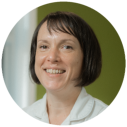
Our Multidisciplinary Team are Here to Offer You the Most Efficient and Effective
Diagnosis and Treatment Plan Suited to Your Needs and Optimal Wellbeing



What is Acupuncture?
Acupuncture is a treatment derived from ancient
Chinese medicine. Fine needles are inserted at
certain sites in the body for therapeutic or
preventative purposes. It is used in many NHS GP
practices, as well as in most pain clinics and
hospices in the UK.
Acupuncture is often seen as a form of
complementary or alternative medicine (CAM).
How acupuncture works
Western medical acupuncture (dry needling) is the
use of acupuncture following a medical diagnosis. It
involves stimulating sensory nerves under the skin
and in the muscles.
This results in the body producing natural
substances, such as pain-relieving endorphins. It's
likely that these naturally released substances are
responsible for the beneficial effects experienced
with acupuncture.
A course of acupuncture is usually recommended
because it can take a few sessions for you to see
improvements.
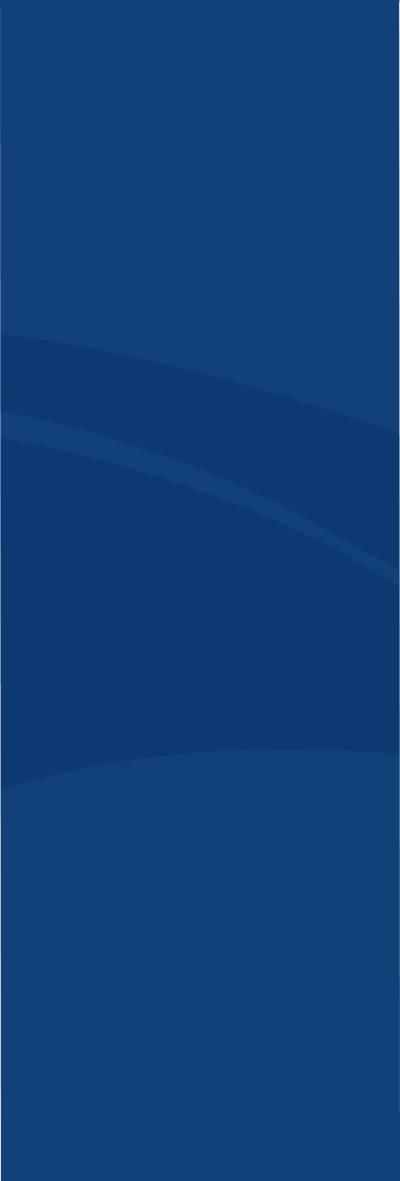
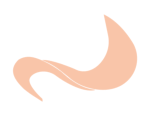
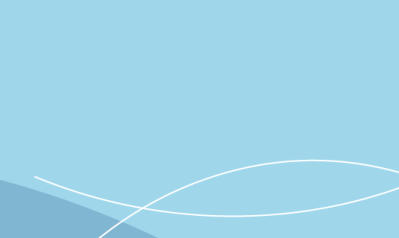
Chinese and
Japanese
Acupuncture
Our Acupuncture
Practitioners
Paul is a fully qualified and
insured Acupuncturist and is a
member of The Acupuncture
Society. He has a diploma in
Chinese Medicine and a 1st Class
BSc ( Hons) in Acupuncture
Paul Apostolou




Traditional acupuncture is based on the belief that
an energy, or "life force", flows through the body in
channels called meridians. This life force is known
as Qi (pronounced "chee").
Practitioners who use acupuncture in the traditional
way believe that when Qi does not flow freely
through the body, this can cause illness. They also
believe acupuncture can restore the flow of Qi, and
so restore health.
How acupuncture is performed
An acupuncture session lasts 1 hour and involves an
assessment of your general health, medical history
and a physical examination, followed by insertion of
the acupuncture needles.
Courses of treatment often involve several separate
sessions, but this can vary.
Insertion of the needles
The needles are inserted into specific places on the
body, which practitioners call acupuncture points.
During the session, you'll usually be asked to sit or
lie down. You may also be asked to remove some
clothes so the practitioner can access certain parts
of your body.
The needles used are very fine and are usually a few
centimetres long. They are single-use, pre-sterilised
needles that are disposed of immediately after use.
Acupuncture practitioners choose specific points to
place the needles based on your condition. Several
points may be used during a typical session,
depending on the number of symptoms you have.
The needles may be inserted just under the skin, or
deeper so they reach muscle. Once the needles are
in place, they may be left in position for a length of
time lasting from a few minutes up to around 30
minutes.
You may feel a tingling or a dull ache when the
needles are inserted but you should not experience
any significant pain. If you do, let your practitioner
know straight away.
It's generally safe to have acupuncture when you're
pregnant. However, let your acupuncture
practitioner know if you're pregnant because certain
acupuncture points cannot be used safely during
pregnancy.
Read more about the safety of complementary
therapies in pregnancy.
Uses of acupuncture
Acupuncture practitioners – sometimes called
acupuncturists – use acupuncture to treat a wide
range of health conditions. However, the use of
acupuncture is not always based on rigorous
scientific evidence.
The National Institute for Health and Care
Excellence (NICE) provides guidelines for the NHS
on the use of treatments and care of patients.
Currently, NICE only recommends considering
acupuncture as a treatment option for:
•
Chronic (long-term) pain
•
Chronic tension-type headaches
•
Migraines
•
Prostatitis symptoms
•
Hiccups
Acupuncture is also often used to treat other
conditions and symptoms, including:
•
Joint and muscle pain
•
Jaw pain
•
Cancer symptoms such as pain
•
Side effects of cancer treatment such as feeling
or being sick from chemotherapy
•
Feeling sick or being sick after surgery
However, the evidence on the effectiveness of
acupuncture compared with other treatments is
unclear.
93 Lynn Rd, Downham Market, PE38 9QE
Visit Us
Contact Us
Patient-centred healthcare to improve your quality of life
93 Lynn Rd, Downham Market, PE38 9QE
Visit Us
Contact Us
Sara is a Physiotherapist
specialising in adults with any
Musculoskeletal problems. Sara
takes a “biopsychosocial” approach
with person-centred goals.
Sara Miguel



Clare is a structural osteopath,
and has experience in
craniosacral osteopathy, visceral
osteopathy, functional and
harmonic techniques to suit the
individual patient needs.


Clare Finch

Richard is an osteopath
specialising in treating back and
neck pain, shoulder and arm
pain, pelvis, hip and leg pain
sports injuries.
Richard Harvey

























